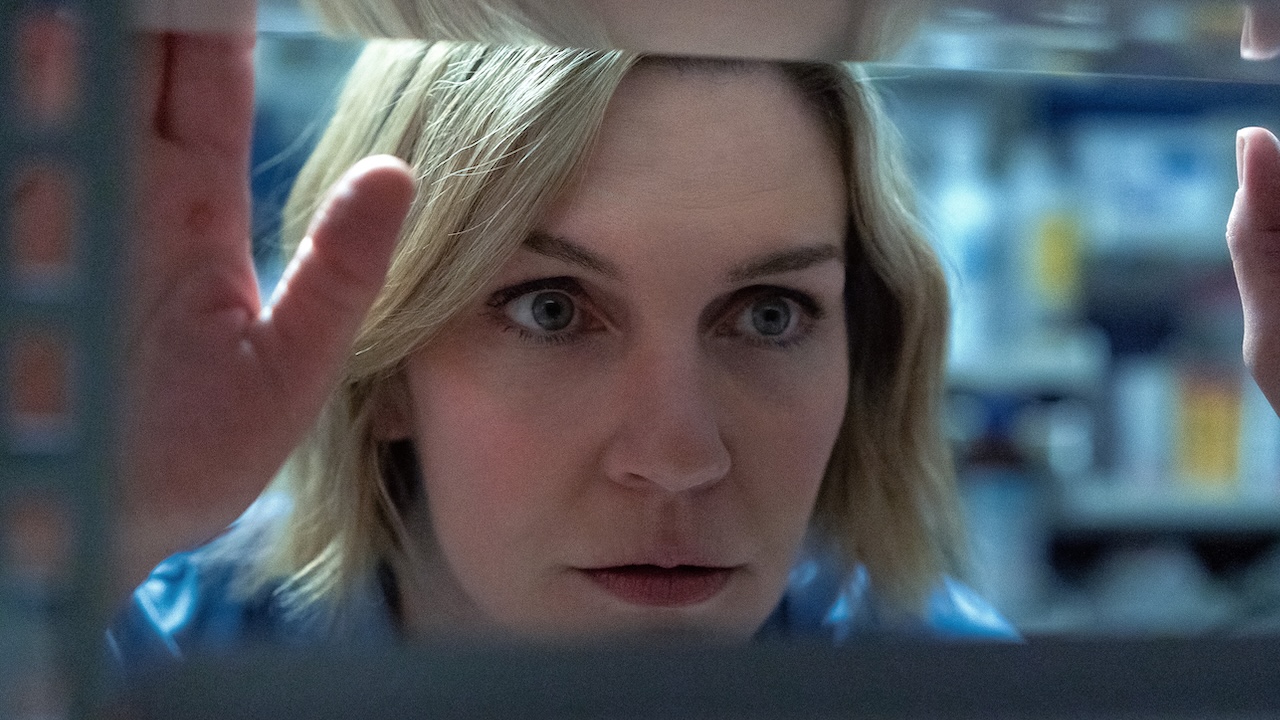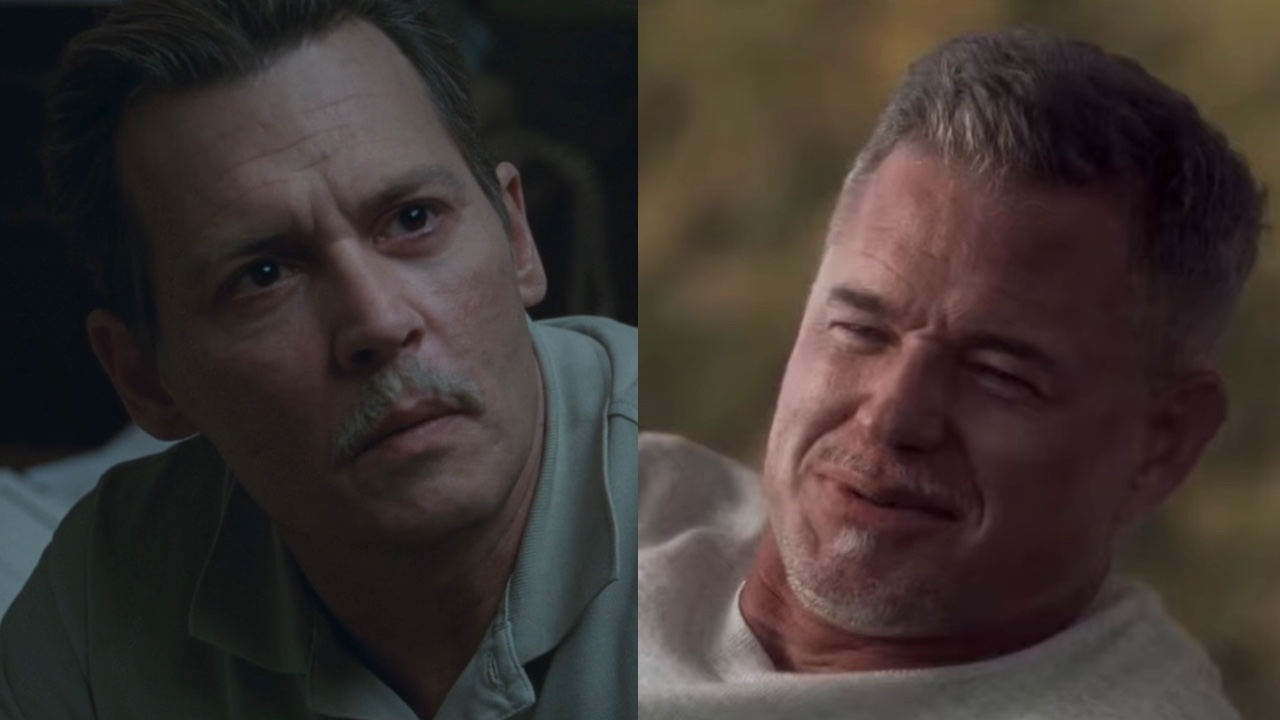One Way Pluribus' Carol Is Already Reminding Me Of Walter White's Heisenberg Era On Breaking Bad
Would you like to binge Breaking Bad, Carol?

Your Daily Blend of Entertainment News
You are now subscribed
Your newsletter sign-up was successful
Mild spoilers below for anyone who isn't caught up with Pluribus' first season via Apple TV subscription.
As someone who's gone through fluxuating levels of obsession with Breaking Bad and Better Call Saul, I was beyond ready for Vince Gilligan's newest show Pluribus to similarly suck me in, and I also knew that I'd be unable to watch without my brain forcing comparisons and contrasts between all the shows. I'd like to be able to say it's because all three shows take place in Albuquerque, but nope.
To be sure, Rhea Seehorn's Carol is invested in a story that's entirely unlike Gilligan's grittier crime drama and its body-dropping legal-ish drama follow-up, and not just because I can't predict what'll happen. Carol is a bestselling author and one of very few people left who still has her own thoughts and motivations intact, as the rest of the planet has "suffered" what appears to be the most peaceful alien invasion imaginable. It'd be an understatement to say she's not into it, and she makes zero effort to hide her constant misery and disdain.
It's that side of Carol's personality that brings to mind the point in Bryan Cranston's Breaking Bad run when his Heisenberg persona was rolling on all cyllinders. So let's dig into it.
Pluribus' Carol Is A Miserable And Moody Person, But Rhea Seehorn Immediately Makes It Work
Even before the world went belly-up, Carol Sturka revealed herself to be more misanthropic than one might expect from a hugely popular fantasy author with a loving fanbase. Flashbacks have also shown her to be the glass-half-empty side of the coin to optimistic manager and lover Helen (Miriam Shor). So when Helen is killed and the rest of humanity is taken over by hive-mind behavior, Carol is certainly qualified to be the most unhappy person in existence.
The tonal specifics are obviously intentional, with Carol set up to be the immovable object facing the presumably unstoppable force of The Others' influence. They're currently unable to figure out how to tap into Carol's brain, which sets up an ongoing mystery of sorts, and also allows for a very non-traditional narrative set-up. Our protagonist is both rude and rash, and she makes decisions that seem to fly in the face of her comfort and survival; meanwhile, the antagonists are unendingly pleasant, helpful and seem to have Carol's best interests at heart, even if an ulterior motive or two is also lurking.
A set-up like this doesn't happen that often because it's not one that's destined to succeed. Main characters are generally meant to be likeable and agreeable so that the biggest number of viewers watching can find ways to relate with them. That's more or less how Seehorn was brought into Better Call Saul's story, and her character Kim Wexler became arguably the fourth biggest character in Vince Gilligan and Peter Gould's crime saga.
Your Daily Blend of Entertainment News
Without Better Call Saul endearing me so strongly to what Rhea Seehorn brings to Gilligan's storytelling, I can't say for sure that I'd be quite as won over by Carol's unending snark and attitude. But probably so, with Walter White setting the precedent.
Heisenberg Is One Of TV's Most Adored Monsters, Despite Being An Egotistical Asshole
Even beyond the "Prestige TV" comparisons of the overall shows, Breaking Bad's Walter White stands alongside The Sopranos' Tony Soprano in the sense of being TV criminals that fans idolize as if they were bigger heroes than Superman. But when you look at Walt's behavior solely during the later seasons when he's fully taken on the Heisenberg persona, almost nothing he does is virtuous or agreeable or meant to earn goodwill from viewers.
Walt becomes increasingly invested in his own legacy and rise to prominence, and completely loses sight of the vaguely justified reasons he initially had for cooking meth. As Heisenberg, Walt legitimately burns all bridges and seems incapable of going any lower by the end, having both witnessed and perpetrated the murders of those most important to his loved ones, with plenty of other bodies keeping them company.
Unlike Rhea Seehorn's Carol, however, Bryan Cranston was given an ample amount of time during Breaking Bad 's early seasons to play up Walt as a smart and sympathetic family man who opts for logic over emotion. We see him as the loving husband, the supportive father and the dedicated employee, so that it means that much more when those distinctions are stripped away and destroyed.
By the time he's declaring himself to be the "one who knocks," Walt already has millions of viewers on his side, and it's an easy shift to follow along with, especially with an even bigger villainous benchmark like Gus Fring looming. So then when that threat gets taken care of, it's beyond clear that Walt could do absolutely anything without facing a full fanbase backlash.
We're not there yet with Seehorn's Carol, who doesn't appear capable of sinking to Walt's level just yet. Even though she did technically kill millions of people when her emotions went untethered, Carol had no idea it was happening, and has since atempted to avoid repeated instances. Which may or may not be the nicest thing the character has done so far.
By all means, Carol will likely start to shed some of her barbed armor as Pluribus gets deeper into Season 1, but I'm holding out hope that she remains just as prickly to keep audiences on our toes. If we've made it this far without everyone hating her, there's no reason to shift course, I'd think. Blessed be Bryan Cranston and Rhea Seehorn for making murderers and curmudgeons so loveable.
Vince Gilligan has said he’d only go back to Breaking Bad’s universe without other projects to work on, but that would mean Pluribus would need to get canceled. So for now, that’s a big reason why I’m not so eager to dig deeper into Walter White or Saul Goodman’s stories. But just for now.
Pluribus streams new episodes on Apple TV every Friday.

Nick is a Cajun Country native and an Assistant Managing Editor with a focus on TV and features. His humble origin story with CinemaBlend began all the way back in the pre-streaming era, circa 2009, as a freelancing DVD reviewer and TV recapper. Nick leapfrogged over to the small screen to cover more and more television news and interviews, eventually taking over the section for the current era and covering topics like Yellowstone, The Walking Dead and horror. Born in Louisiana and currently living in Texas — Who Dat Nation over America’s Team all day, all night — Nick spent several years in the hospitality industry, and also worked as a 911 operator. If you ever happened to hear his music or read his comics/short stories, you have his sympathy.
You must confirm your public display name before commenting
Please logout and then login again, you will then be prompted to enter your display name.
